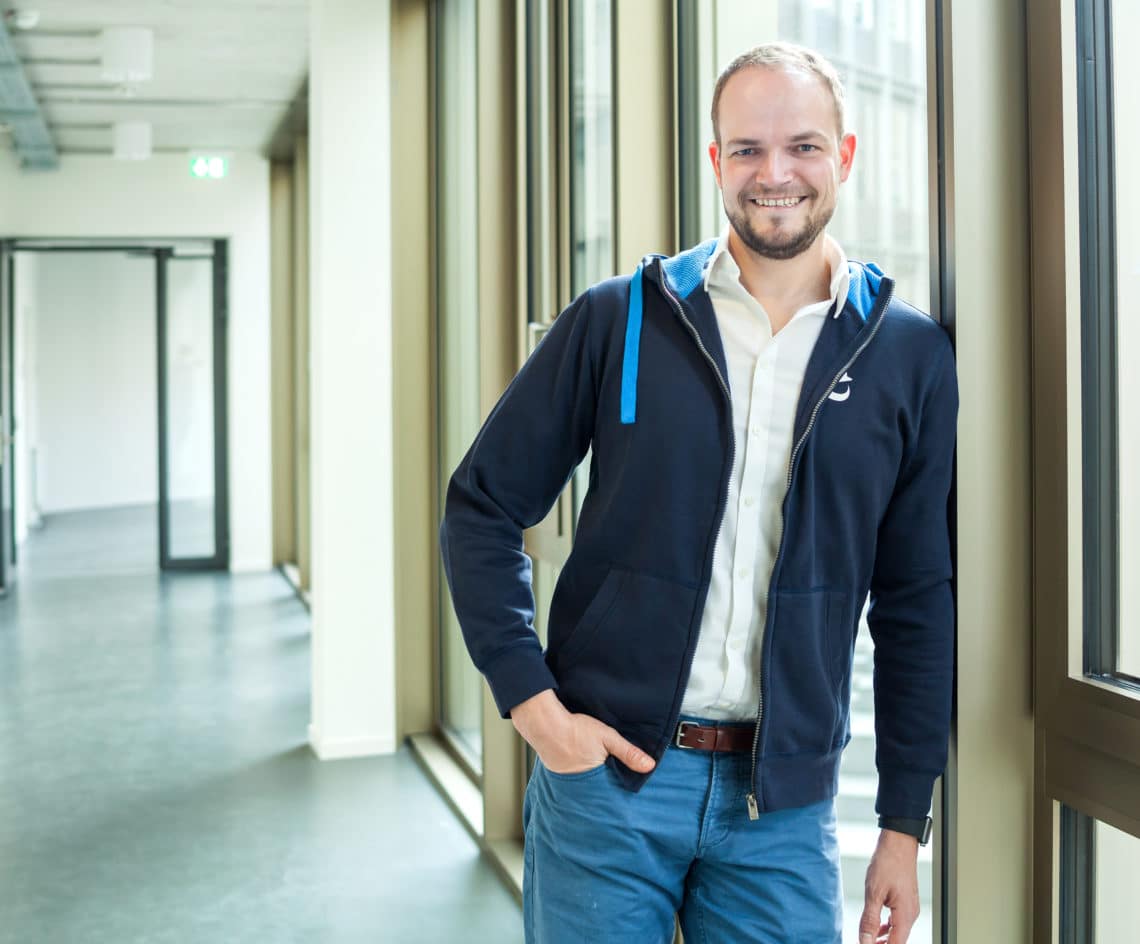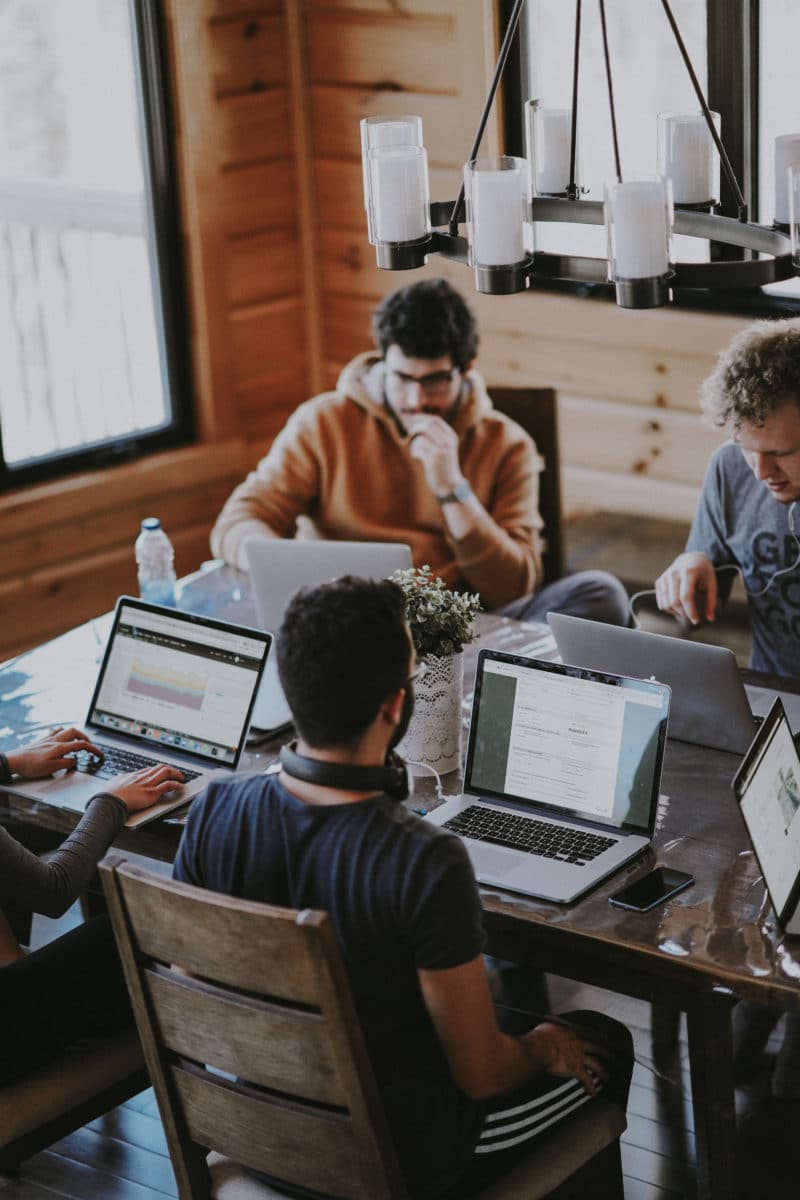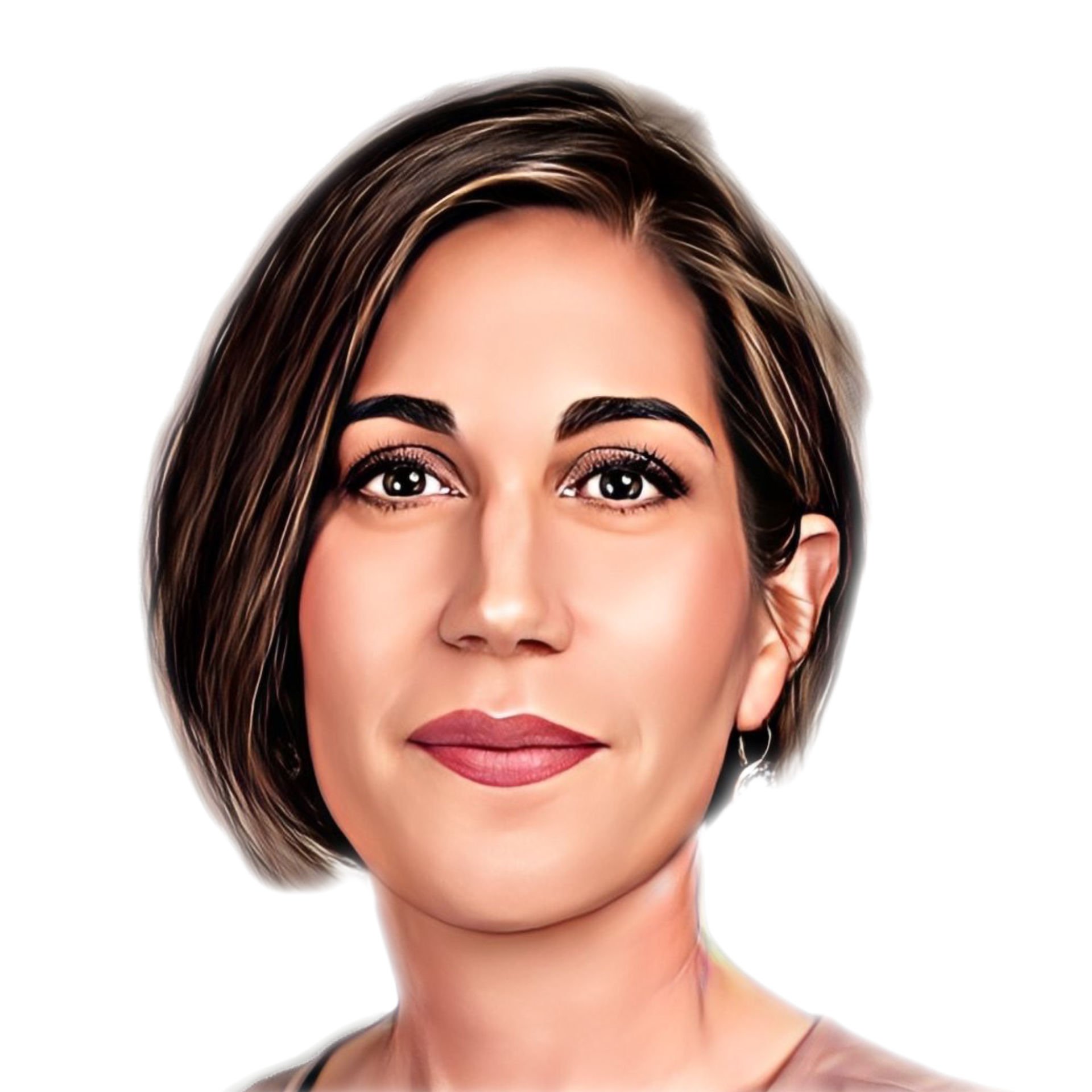Als Team von Payment and Banking versuchen wir, einen kontinuierlichen Überblick über die Branche zu behalten und berichten über kleine wie große Fintechs und Insurtechs, über etablierten Banken ebenso wie über Neo-Banken, über digitale Strategien, über große Investitionen nationaler und internationaler Geldgeber, schreiben über Exits und liefern Analysen zu aktuellen Themen.
Manche Unternehmen erscheinen dabei häufiger in der Berichterstattung als andere. Das wollen wir ändern und starten mit „was macht eigentlich …“ eine neue Rubrik, in der wir den vielen tollen Unternehmen der Branche Aufmerksamkeit schenken werden, die einen hervorragenden Job machen, im täglichen Business aber manchmal ein wenig unter dem Radar bleiben. Wir wollen wissen, was die Gründer gerade umtreibt, was Stand der Stunde ist, welche Pläne aktuell verfolgt werden und womit uns das Unternehmen sogar bald überraschen wird.
Zur Premiere unserer neuen Reihe konnten wir Florian Christ von fino gewinnen. Wir sprechen mit ihm über das kürzlich erfolgte Investment in anybill, über die USA-Pläne des Unternehmen und über die Notwendigkeit virtueller Tassen Kaffee in Zeiten wie diesen.
Hallo Florian, arbeitest du noch im Büro oder schon im Homeoffice?
Ich arbeite zu Hause, ebenso wie alle unsere Mitarbeiter. Da wir ja mittlerweile eine Reihe Standorte in Deutschland haben, sind wir es gewöhnt, remote zu arbeiten. Daher bedeutet die aktuelle Situation im Arbeitsalltag keine großen Veränderungen für uns. Wir planen unsere Tage gut und können auch Entscheidungsprozesse beschleunigen.

Neu ist in der aktuellen Situation jedoch, dass wir zusätzlich eine virtuelle Küche eingerichtet haben, um mit den Kollegen wie im Büro bei einer Tasse Kaffee einfach mal plaudern zu können und einen Raum für Begegnung zu haben. Bisher wird das Angebot gut angenommen, die Rückmeldung ist sehr gut!
Ihr gehört nicht zu den Unternehmen, von denen man im täglichen Tagesgeschäft hört. Ist das eine bewusste, strategische Entscheidung von euch?
Nein, das ist es nicht, aber es ist eine bewusste Entscheidung von uns, nur dann über uns zu sprechen, wenn es wirklich etwas zu sagen gibt. Zuletzt, dass wir in das Unternehmen anybill investiert haben. Mit dieser Entscheidung verfolgen wir ein klares Ziel.
Welches ist das und wo steht ihr aktuell als Unternehmen?
Als wir 2015 an den Markt gingen, haben wir uns vor allem im Fintech-Bereich stark aufgestellt und sind mit dem digitalen Kontowechsel gestartet. fino hat sich aber in den letzten Jahren weiterentwickelt und steht heute auf drei Säulen:
1.Fintech mit Kontowechsel und den fino Profilen Yoli (B2C) und Finux (B2B).
2. Im Bereich DocTech, decken wir mit getmyinvoices und anybill alles rund um die Themen Rechnungen, Belege und Buchhaltungsvorbereitung ab.
3.Mit KYCnow, einer Plattform, die wir gemeinsam mit der SCHUFA entwickelt haben und die alle Daten liefert, die im KYC-Prozess bis zur abschließenden Risikobewertung nach GwG notwendig sind, decken wir nun auch den Bereich RegTech ab.

Unserer Ursprungsidee, Produkte B2B2x mit Partner an Endkunden zu geben, sind wir treu geblieben. Allerdings haben wir in den letzten Jahren unseren Wirkungsraum deutlich vergrößert. Neben Banken zählen heute auch Versicherungen, Buchhaltungsanbieter, Steuerberater, Auskunfteien, der Handel und große Corporates sowie StartUps zu unseren Kunden. Durch die Partner-Vielfalt haben es Endkunden und Unternehmen jetzt viel leichter unsere Produkte zu nutzen. Aktuell beschäftigen wir rund 100 Mitarbeiter an den Standorten Kassel, Berlin, Hamburg, Lübeck und Regensburg.
Das klingt, als wolltet ihr so etwas wie ein fino-Universum schaffen?
Universum würde ich nicht sagen. Wir wollen Dinge, die zusammengehören, zusammenbringen, verbessern und durch das Zusammenbringen der Bereiche Mehrwert schaffen. Fünf Jahre nach Gründung verstehen wir heute ein Konto vermutlich so gut wie kaum ein anderer. In der Verbindung mit getmyinvoices und anybill entstehen allerdings komplett neue Geschäftsmodelle und Automatismen, beispielsweise in der Buchhaltung und bei Abrechnungs- und Bezahlprozessen.
Investiert ihr nun in ein bereits bestehendes RegTech- Startup?
Nein, wir gehen hier einen anderen Weg. fino und SCHUFA sind 2018 gemeinsam mit der Vision gestartet, den Know Your Customer (KYC) – Prozess zu digitalisieren. Wir bringen unsere Innovation und technische Lösungskompetenz ein. SCHUFA stellt als Deutschlands führender Lösungsanbieter von Auskunftei- und Informationsdienstleistungen Netzwerk und Daten zur Verfügung. Heute arbeiten Personen in Kassel, Frankfurt, Wiesbaden und Hamburg an der KYCnow-Plattform und entwickeln sie täglich weiter. KYCnow funktioniert bereits sehr erfolgreich am Markt.
Heißt es jetzt erst einmal Luft holen oder geht es in 2020 nahtlos weiter?
Wir werden 2020 noch stärker API-driven und legen über fino und unsere Produkte einen API-Layer, so dass Interessenten unsere Technologie, IP, Know-how und Produkte noch besser in Ihre Welt integrieren können. Daran arbeiten wir schon eine ganze Weile und öffnen konsequent unsere Welt für unsere Partner.
Für 2020 hattet ihr zusätzlich international große Pläne. Bleiben diese in Anbetracht der aktuellen Situation weiter bestehen, oder bremst sie euch aus?
Es wird auf jeden Fall nicht einfacher :) Wir sind seit Februar dieses Jahres mit Plug and Play USA aktiv. Die Financial-Services-Partner von PnP haben uns aus 1.000 Kandidaten ausgewählt, um unsere Produkte in den USA zu nutzen. Statt Präsenzzeit in den USA, wurde alles Vorerst auf virtuell umgestellt. So findet zum Beispiel aktuell die erste virtuelle Fokuswoche statt. Es wird sich zeigen müssen, wie gut die Zusammenarbeit mit den Banken und Partnern vor Ort auf diese Weise sein kann.
Mit PnP wollen wir die ersten funktionierenden Projekte umsetzen, um den Ausbau des Amerika-Geschäftes weiter zu forcieren. Ob sich das verschiebt? Dadurch, dass uns keiner drängelt und wir chancenorientiert arbeiten, ist es für mich nicht schlimm, wenn wir drei Monate später starten.

Wichtig ist für mich, dass wir konsequent unser Ziel verfolgen und unseren Markt vergrößern. Da hilft es auch, dass unser Geschäftsmodell stabil ist und wir nicht auf die Umsätze aus Amerika angewiesen sind.
Was waren in den letzten fünf Jahren die größten Learnings, die ihr hattet?
Am Anfang mussten wir dafür werben, dass Partnerschaften entstehen, dass man auf Augenhöhe miteinander arbeiten kann und dass neue Geschäftsmodelle funktionieren. Die Lage hat sich in den letzten Jahren gedreht. Wir haben bewiesen, dass wir ein nachhaltiges Geschäftsmodell haben. Immer mehr Unternehmen kommen jetzt auf uns zu, um gemeinsame Produkte und Geschäftsmodelle zu entwickeln. Das ist eine sehr, sehr positive Veränderung. Kontowechsel zählt nicht zu den Kernprozessen einer Bank und heute sprechen wir durchaus über andere Themenfelder. Die Wertschätzung der Partner hat sich deutlich verändert.
Diese Entwicklung gilt sicher nicht nur für uns. Was uns jedoch sehr geholfen hat, ist die Vertrauensbeziehung, die wir über die Jahre aufgebaut haben. Jüngere Startups haben diesen Weg noch vor sich.
Gab es in den letzten fünf Jahren einen Punkt, an dem euch beinahe die Luft ausgegangen wäre?
Die Luft ist uns nicht ausgegangen, aber selbstverständlich haben wir unsere Strukturen stetig hinterfragt. Das Wort Struktur war vor drei Jahren noch ein böses Wort bei fino, aber wer international die gleiche Qualität liefern möchte, muss anfangen, die Organisation darauf auszurichten. Das ist ein kontinuierliches Verändern. Ich finde neue Denkanstöße wertvoll und sie machen das Arbeiten interessant.
Im letzten Jahr waren wir einen Monat lang mit dem German Accelerator in New York. Es war gut, auch mal von außen auf das Unternehmen zu blicken und sich zu fragen, was es braucht, vom Start-up zum Scale-up zu werden. Der Austausch auch mit internationalen Unternehmen hat mir dabei sehr geholfen. Wo muss man Veränderungen herbeiführen? Wo muss man auch Gewohnheiten aufgeben, um das nächste Level zu erreichen? Der Schritt vom Start-up zum Scale-up ist eigentlich der, der uns mit am längsten begleitet hat und auch noch nicht ganz abgeschlossen ist.
Kannst du ein Beispiel hierfür nennen?

fino war in den ersten Jahren ein Unternehmen, das sehr schnell Produkte bauen konnte, die ein gutes Geschäftsmodell haben und die den Nutzern Spaß gemacht haben. Was wir damals nicht sofort betrachtet haben: Das Team so aufzustellen, dass auch dauerhaft Mitarbeiter da sind, die das Produkt danach skalieren wollen, beispielsweise bei der Internationalisierung oder auch im Longtail, bis hin zum letzten Kunden. Aus dem kreativen StartUp haben wir ein Unternehmen gemacht, das einen hohen Kreativitätsanteil hat, aber eben darüber hinaus auch auf Augenhöhe liefern kann. Mit den neuen Mitarbeitern, die man hierfür reinholt, ändert sich jedoch zwangsläufig die Kultur im Unternehmen.
Das zu managen ist nicht immer einfach. Mir hat es in der Phase sehr geholfen, mich mit anderen Startups zu unterhalten, die an den gleichen Punkten zu unterschiedlichen Zeitpunkten standen. Man ahnt, dass diese Phase kommen wird, ist aber überrascht, wenn sie dann da ist. Trotz aller Veränderung verfolgen wir unverändert unsere Grundwerte.
Vom Start-up zum Scale-up: Ihr seid nach wie vor komplett eigenfinanziert. Habt ihr jetzt auch schon darüber nachgedacht Kapital aufzunehmen?
Ja! Wir würden Geld aufnehmen, aber eher für sowas wie den Markteintritt in Amerika, um den Schritt losgelöst und konsequent von unserem bestehenden Geschäft anzugehen. Das schafft Stabilität und Kraft für Expansion. Für unser heutiges Geschäft brauchen wir weiterhin kein Kapital, darauf sind wir stolz und das wollen wir auch nicht ändern. fino ist und bleibt ein auf Nachhaltigkeit ausgelegtes Unternehmen ohne Exit-Ambitionen.
Das heißt, die Kapitalaufnahme wäre für 2020 geplant gewesen?
Was heißt gewesen? Das sind Sachen, an denen ich konstant weiter dran bin. Und ich lasse mich ja nicht durch die aktuelle Situation abhalten.
In welchen Ländern seid ihr derzeit aktiv?
Grundsätzlich ist Deutschland für alle Produkte der Kernmarkt. In den benachbarten Ländern sind wir im Bereich Fintech aktiv oder sind auf dem Weg dahin. Mit getmyinvoices sind wir schon immer international aufgestellt, z.B. im englisch-sprachigen Raum in Amerika, Kanada und Australien. Auch im europäischen Raum haben wir Nutzer oder Partner. Mit RegTech sind wir aktuell in Deutschland aktiv.
Corona beschäftigt auch die Finanzindustrie. Worin siehst du aktuell auch eine Chance für die Branche?
Das Zusammenwirken wird deutlich intensiver. Ich glaube, dass Corona einen Hype „bargeldloses Bezahlen“ auslösen wird und die Offenheit für kollaboratives Arbeiten steigt. Hinzu kommt, dass die Finanzbranche mittlerweile breiter ist, viele Teilnehmer decken eine Nische ab und die spezialisierten Angebote verschmelzen immer mehr. Es ist kein Gegeneinander mehr, wir agieren nicht mehr nur hinter großen Playern, sondern werden neue Formen der Zusammenarbeit und neue Geschäftsmodelle finden.
„Ich glaube, dass Corona einen Hype ‚bargeldloses Bezahlen‘ auslösen wird und die Offenheit für kollaboratives Arbeiten steigt.“
Profitiert ihr von der Pandemie dahingehend, dass die Nutzer mehr zu Hause sind und sich stärker mit ihren Finanzen auseinandersetzen und ihr Konto wechseln und die Buchhaltung in Schuss bringen? Seht ihr gar ein Anwachsen der Nutzerzahlen?
Was wir indirekt sehen und merken ist, dass die Leute insgesamt mehr auf das digitale Angebot setzen. Wir haben letzte Woche unser neues OnboardingX als Nachfolger für den Kontowechsel gelauncht und es ist schön zu sehen, dass einer der ersten Nutzer ein 81-Jähriger war, der uns tolles Feedback gegeben hat. Auch heute haben alle Altersklassen unsere Produkte genutzt, früher jedoch vermehrt in der Filiale mit dem Berater. Es ist eine gute Zeit für einfache digitale Produkte, die Menschen das Leben leichter machen.





